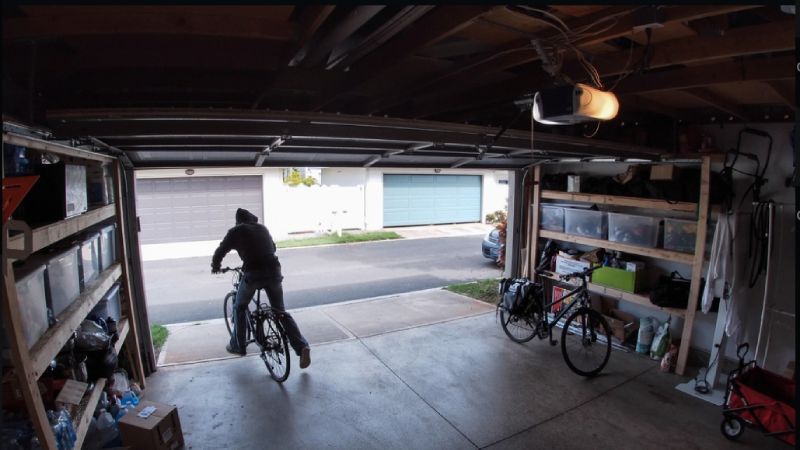
Imagine that you take your car in for an oil change, and then two nights later the oil change technician breaks into your house through the garage door and steals your jewelry. For a handful of homeowners, this is a valid threat, thanks to garage door code cloning.
As Quinton Hamp, owner of Garage Door Markering Syndicate, points out, “Garage doors have historically been a soft target in the home. Unless manually locked each night, the basic locking mechanism of the garage door opener can be overridden by applying enough force with a crowbar.”
Additionally, garage door panels are rather weak and can be easily cut into or broken. Aggressive thieves have a long history of destroying garage doors by backing a pickup truck into them. These aggressive attacks have generally been reserved for homes where safes or easily accessible jewels are known to exist.
Now, new devices that can replicate the remote opening garage door signal are becoming common. These devices are widely available online and are often advertised as “educational science projects” on social media platforms such as Facebook or Instagram.
Garage door manufacturers have long been aware of the vulnerability that remote opening systems pose. When these systems were first invented, it was common for one garage door remote to open multiple garage doors in the neighborhood. Teenagers would roam the neighborhood with their parent’s remote, exploring which garage doors could be opened by the same remote.
This vulnerability was mostly squashed with the rollout of the Security+ protocol around the years of 1993 to 1997. Prior to this, garage door openers created a single signal, which could be used to open any garage door on that signal. This meant that a thief in the possession of a few handheld remotes could compromise a wide number of houses in their neighborhood. These systems are also vulnerable to code-grabbing technology and are especially vulnerable today.
The most well-known risk to these garage doors lies in the Flipper cloning device. The Flipper is a genius bit of technology that is sold online to the electronic hobbyist market. It enables users to add remote control to a variety of their projects. It also has a feature that clones any electrical signal, making it possible to play that signal back.
In this case, thieves are using devices like the Flipper to clone the garage door opener signal. This generally means that the thief must have some access to the family, such as being a handyman, housekeeper, or automotive mechanic (since many homeowners leave their remotes on the visors of their vehicles during servicing).
Theoretically, thieves can also use amplifiers to capture the garage door signal from a distance.
As technology progressed, the rolling garage door code became popular as a first-line security measure, often referred to as Security+ or “Code Dodger” by the manufacturers. This system still assigns a single main bandwidth of signal but was a large improvement over the older systems.
Today, on the most modern systems, the code rolls between different uses “sub-signals” to make it impossible to track these signals. Generally, the garage door openers of today work off of millions of these different sub-signals to prevent hacking of the garage door code.
The newest garage door openers use rolling codes that jump along the entire sub-frequency bandwidth, making it nearly impossible to hack the most modern of garage doors.
To prevent having a garage door hacked, there are two main options for homeowners. The first is to upgrade the garage door opener to the latest system. These new systems are virtually impervious to hacking.
The second option is to bar the inside of the garage door. By manually locking the garage door, the opener cannot be overridden. Of course, this is an inconvenient process and impractical for most homeowners.
Education is everything. Homeowners need to be educated on Facebook, Instagram, and Youtube as to the risks of using an outdated opener from the 1990s. These educational opportunities also provide marketing opportunities for garage door installers to sell them a more secure system.